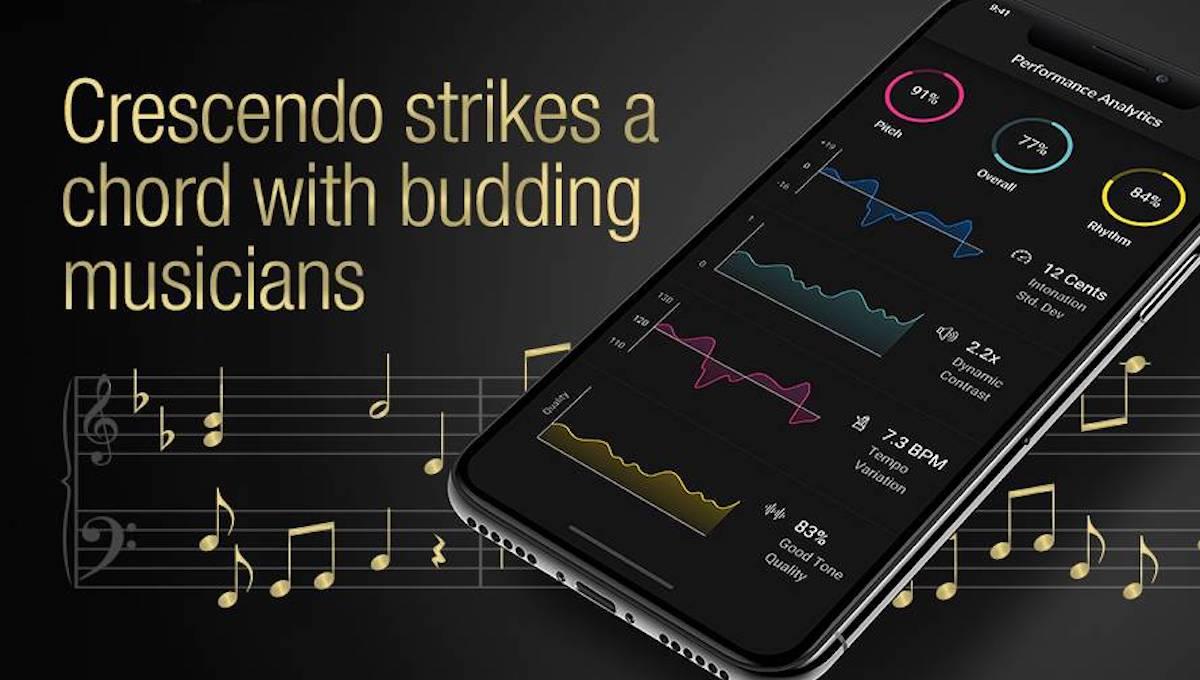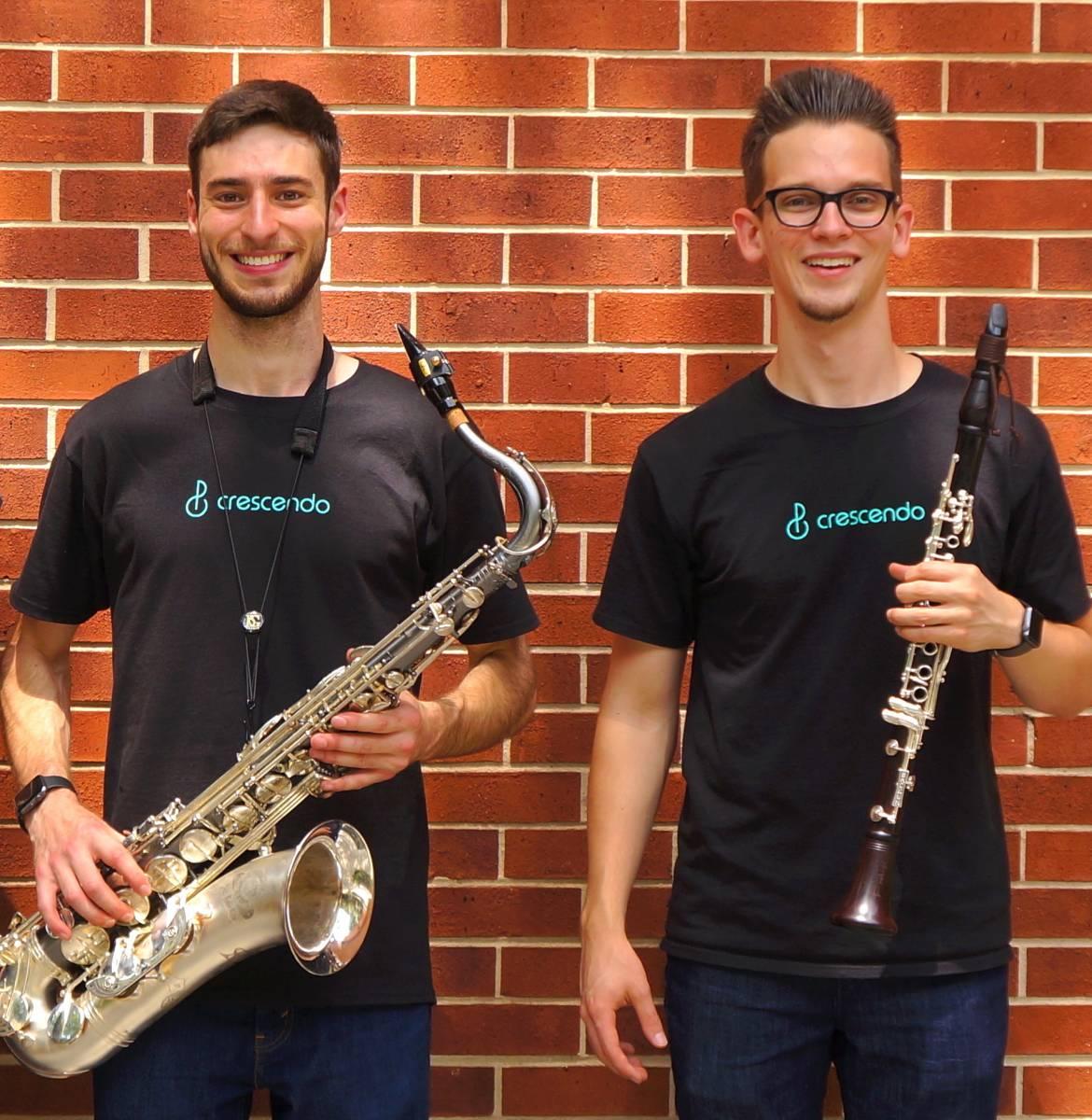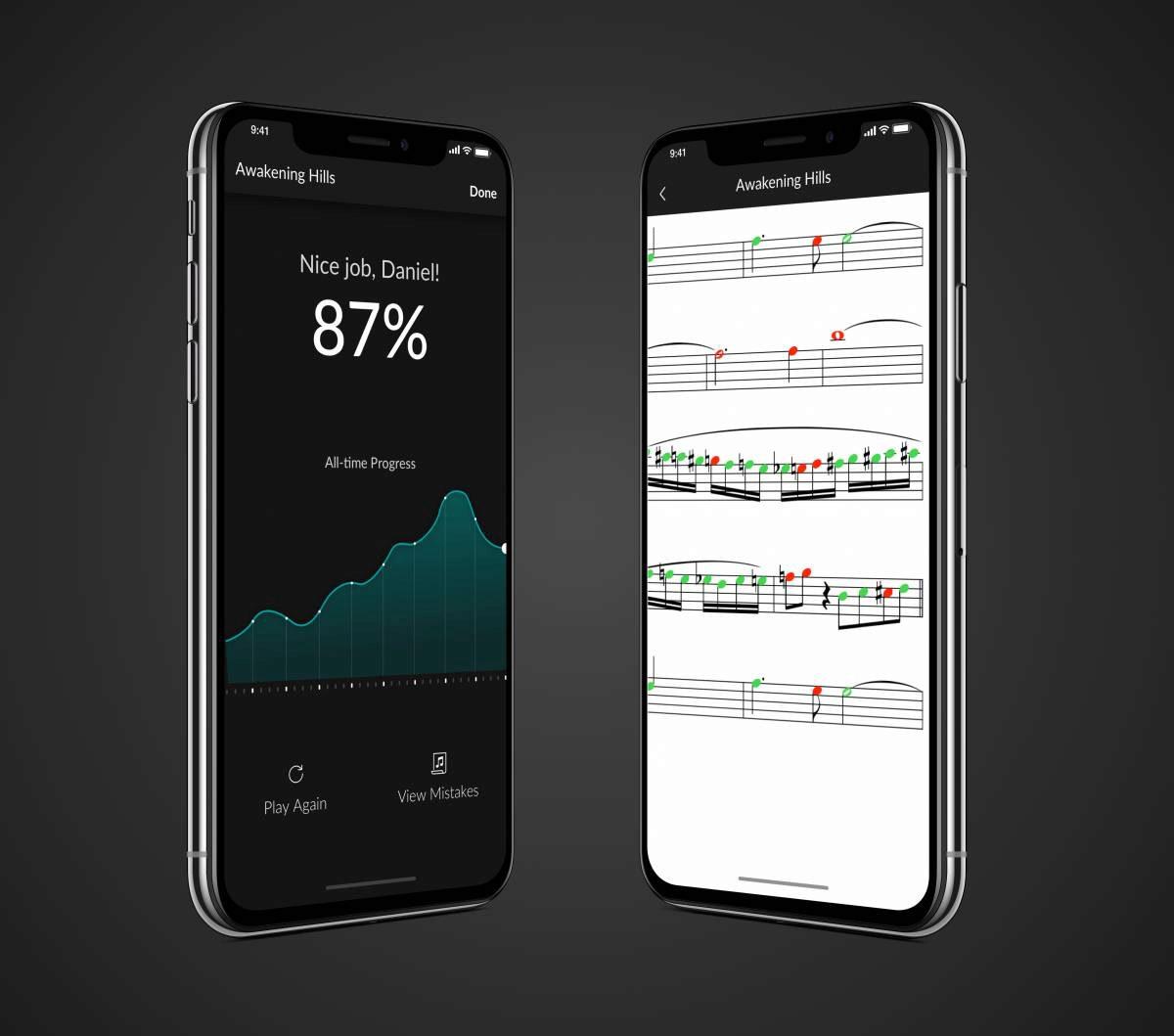Music Trainer Crescendo Helps One Million Musicians

A young woman living in China dreamed that she would one day play the violin in college. She faced considerable obstacles on the path to this dream – her parents opposed the decision and said she wasn’t good enough. After three months of using Crescendo, an app created by Tech students that listens and provides feedback to musicians, she passed her final playing test and got the chance to go to college for music.
There are numerous aspiring musicians just like her across the world, and the startup app Crescendo aims to give them the individualized attention that their parents and teachers can’t. With the help of artificial intelligence, computer vision and acoustic pitch detection, Crescendo compares what the musician plays with written sheet music and provides feedback to help them improve. It shows the musician the notes they missed and the ones they nailed. The app, which is available for download on the Apple store, recently surpassed the milestone of one million users.
Seth Radman and Stephen Schwann, who were mechanical engineering undergrads at Georgia Tech before they were startup founders, met in Georgia Tech’s marching band and had one very important thing in common: a love for music and a desire to share that love with others.
But Crescendo began as a different company entirely: Plutonium Apps. Radman and Schwann worked with developers all over the country to build mobile apps for both startups and corporate clients. They brought life to other people’s app ideas. As they spent time building other people’s apps, they were starting to have a lot of ideas of their own, most of which revolved around music.
One of those was called Pulse. This app is a haptic metronome for the Apple Watch; it taps users on the wrist, helping them keep a steady beat as they play. Radman and Schwann created it as a side project while they were still working with Plutonium Apps. Due to some lucky release timing and getting featured on the homepage of the Apple App Store, Pulse became very successful.
After gaining 50,000 users on Pulse and growing Plutonium Apps to an app construction and consulting platform that could release a new product every six weeks, Radman and Schwann realized that their progress had stagnated. They needed some mentors and additional guidance to help them scale their business, so they applied for and were accepted into the 2017 Startup Launch program, a component of Georgia Tech’s CREATE-X initiative.
CREATE-X offers programming for all Tech students that instills entrepreneurial confidence in students and empowers them to launch real startups. It aims to provide students with the skills, knowledge, mentorship and experiences that they will need when they graduate.
CREATE-X challenges participants to think hard about what their company aims to do, and whether their product is something people really need and want. Radman and Schwann eventually decided that Plutonium Apps didn’t align with their passions and wasn’t a viable business model and abandoned it entirely. As is the case with many teams that go through Startup Launch, at the end of the summer the team had a startup that looked very different than the one they had begun with. Some tough talks with mentors and self-evaluation prompted them to reevaluate what they were doing and why. They decided to go back to their roots: music.
“In our opinion, music is one of the more important classes in early years,” said Radman. “It's something you can have for the rest of your life. You can always play music and it's something that helps you connect with other people. The key challenge was: how do we prevent kids from quitting before they get to the good stuff?”
They came up with a new goal: to use technology to help music students improve their skills and keep them from quitting. After talking to more than 100 band directors around the Southeast and investigating what exactly makes students bail, they set off on creating something brand new.
Crescendo uses bleeding-edge artificial intelligence research to power their app. Since the technology is so novel, it was a big challenge at first to understand it and attempt to implement it. They utilized the Music Technology department at Tech as well as other experts and even some of their competitors in the field as resources to help them get off the ground.
“We figured it can't be that hard,” said Radman. “It turned out it was actually pretty hard. The reason why we were able to do that was we actually had a reason to do this.”
Crescendo eventually got up and running. Parents bought it for their children, and music students bought it for themselves. It was helping users improve their skills, therefore increasing their confidence and preventing many students from putting down their instruments for good. The number of users steadily climbed, and the creators of Crescendo started hearing from some of the musicians it had impacted, like that young music student from China.
Today, the app helps more than one million users around the world to feel more assured in their playing skills. But it is far from finished. Radman, who has recently graduated, aims to solidify some new partnerships that will allow Crescendo to provide more music for their users to practice with. The team is also investigating how augmented reality will play a part in the future of the app.
Crescendo has come a long way from its infancy and looks very different than it did when it was born. More change is sure to come, and Radman is ready.

